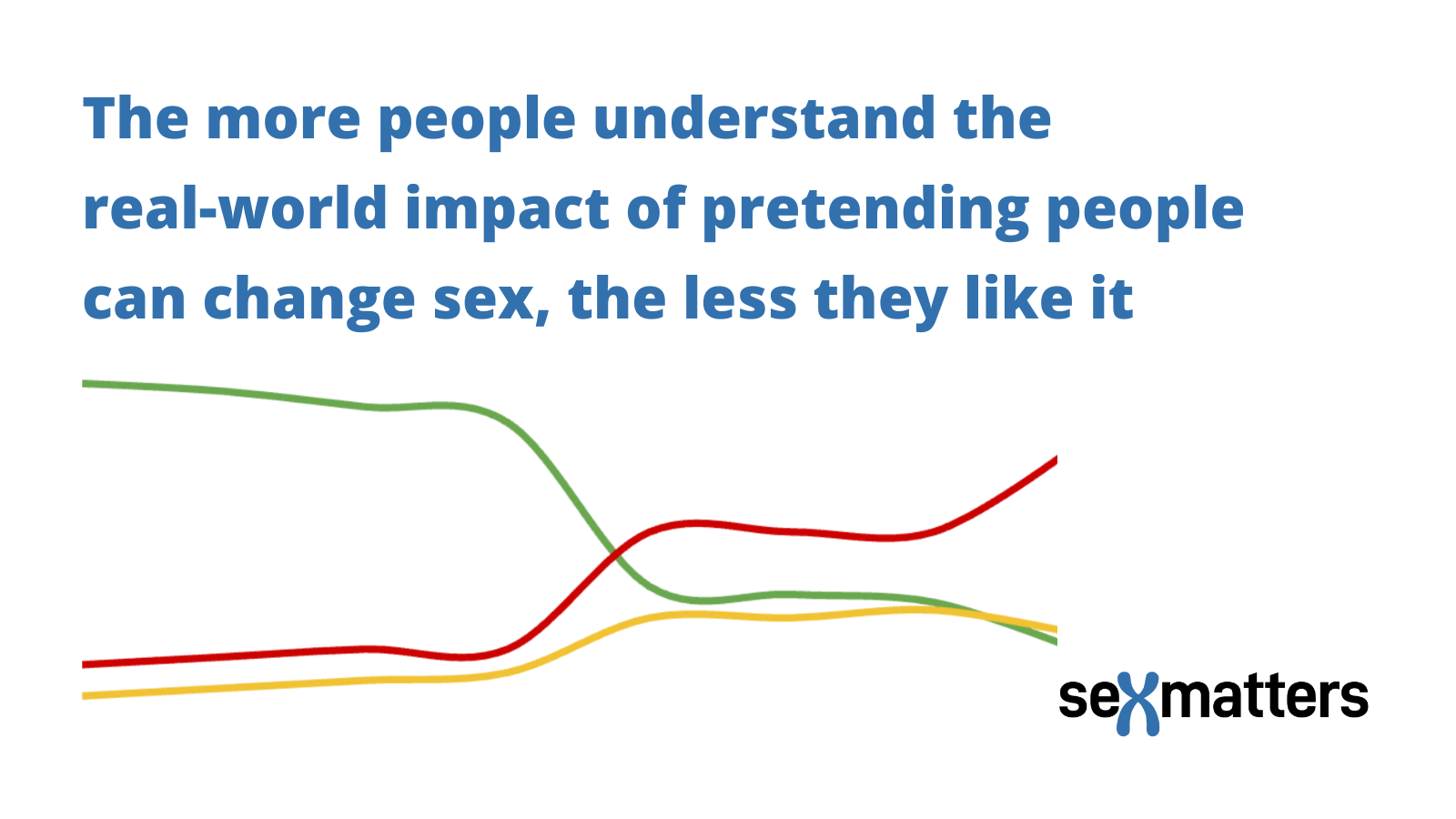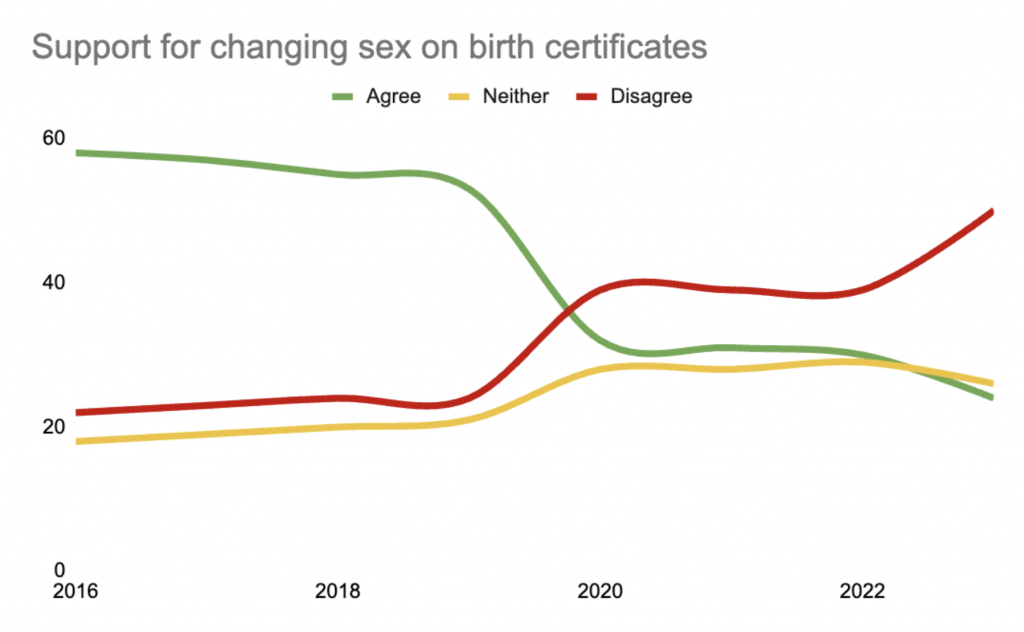Another fall in public support for changing sex on birth certificates

The latest results from the annual British Social Attitudes survey show a further fall in support for the law that allows people to change the sex recorded on their birth certificate. It seems that the more this is talked about, the less people like it.
Each year the British Social Attitudes survey, conducted by the National Centre for Social Research, asks a large representative sample of the UK population what it’s like to live in Britain and what they think about how Britain is run. The survey asks whether transgender people should be allowed to change the sex on their birth certificate. It doesn’t expand on what it means by “transgender” or what conditions should be attached to this process.
Back in 2016, a majority of people agreed that they should be allowed. Only 22% disagreed. A similar proportion didn’t express a view either way.
From 2016 to 2019 there was a slow shift away from allowing people to change their recorded sex, with growing uncertainty and growing resistance. In 2020 support for allowing people to change the sex recorded on their birth certificates collapsed. For the first time, more people disagreed than agreed – 39% against and 32% in favour of allowing change. In effect, 10 million people withdrew their support, some becoming uncertain but most deciding against the policy. There is nothing in the survey question about self-identification of sex, but it seems likely that the debate in 2018 and 2019 about proposed changes to the Gender Recognition Act to make it easy for anyone to change their birth certificate was a major factor.
Support drifted downwards slightly over the next three years to 2022. But the latest results, from 2023, show a further reduction in support, and even more people willing to say they have made up their minds and now disagree. This time, the equivalent of three million people have moved from Yes to No, and another 1.5 million Don’t knows have moved into the No camp. For the first time, a majority of people in the UK think that people should not be allowed to change the sex recorded on their birth certificate.

If the debate around the UK-wide proposal for self-ID in 2018 to 2019 was the catalyst for the first crash in support, it seems likely the debate around the Scottish Gender Recognition Reform bill in 2022 to 2023 caused the second one. Images of convicted double rapist “Isla Bryson” in pink leggings were widely reported across the UK, as was the difficulty that then-First Minister Nicola Sturgeon had in answering the question of whether Bryson was a man or a woman. She said: “That person is a rapist”, as if “rapist” was now a third sex.
Concerns about the medical transitioning of children and young people are also likely to have played a part, with attention on the Tavistock Clinic.
Over the past seven years more than half of those who previously supported this policy have changed their minds. This coincides with growing awareness of gender ideology and how it impacts other people, especially women, who are now enabled by legal protection to express “gender critical” views – and the reaction to those reasonable views. It seems likely that this huge swing in opinion is down to the fact that the more the public understands the real-world impact of pretending that people can change sex, the less they like it.
The National Centre for Social Research, which runs the survey, presents these findings as contrasting with “the more widespread movement of society in a more liberal direction”, pointing to greater acceptance of same-sex relationships and non-traditional family forms. But perhaps allowing people to change their birth certificates, and in general undermining clarity about sex is no longer seen as a straightforwardly “liberal” idea.
People generally take a “live and let live” attitude to other people’s self-expression: how a person dresses and chooses to live their life. But the idea that someone who does not fit with gender stereotypes is actually the opposite sex, or should try to live as if they were, no longer seems like a progressive or liberal position.
Some politicians are still calling the discussion of how these demands affect other people’s rights a “distraction” or part of a “culture war”. But more and more people now realise that “trans rights” are not just about being kind to a tiny minority, and that trying to conceal people’s sex affects the privacy, dignity and safety of women and children. This report is further evidence that women’s rights and the call to stand up for single-sex services are not niche or trivial issues. A majority of the general public now understands this. Perhaps UK politicians will now catch up with public opinion.
